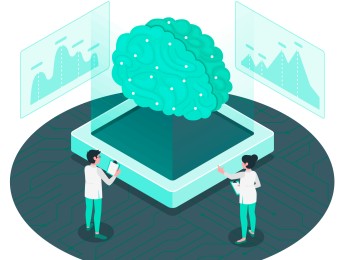Resilience — the ability to adapt, recover, and grow stronger in the face of challenges — is a crucial skill for both learners and teams in today’s unpredictable world. Whether in the classroom, on a project team, or within a school community, fostering resilience leads to improved wellbeing, higher engagement, and better long-term outcomes.
This course equips educators, trainers, and leaders with practical tools and strategies to build resilience in students and teams. You’ll learn how to create supportive environments, teach coping skills, and model resilience yourself — inspiring those you lead to thrive even in tough times.
By the end of this course, participants will be able to:
- Understand the science and key components of resilience.
- Recognize factors that strengthen or undermine resilience in individuals and groups.
- Develop strategies to help students and teams manage stress and setbacks constructively.
- Create emotionally safe environments that encourage growth and persistence.
- Teach and model resilience-building practices in daily interactions.
- Foster a culture of optimism, collaboration, and adaptability.
This course is ideal for:
- Teachers and lecturers at all levels.
- School principals, coordinators, and team leaders.
- Corporate and educational trainers.
- Youth workers and coaches.
- HR professionals and managers overseeing teams.
- Anyone committed to strengthening the emotional and mental resilience of their learners or team members.
The course combines engaging presentations, reflective exercises, group discussions, case studies, and practical activities. Participants will develop actionable plans to strengthen resilience in their students or teams, tailored to their unique context.
Day 5 of each course is reserved for a Q&A session, which may occur off-site. For 10-day courses, this also applies to day 10
Section 1: Understanding Resilience
- What is resilience and why does it matter in education and leadership?
- The psychology and neuroscience of resilience.
- Myths about resilience and how to overcome them.
- Signs of low vs. high resilience in students and teams.
- Activity: Self-assessment of personal and team resilience levels.
Section 2: Building Individual Resilience
- Identifying personal strengths and growth areas.
- Teaching self-regulation, positive self-talk, and problem-solving.
- Helping individuals reframe setbacks as opportunities.
- Strategies for managing emotions, stress, and anxiety.
- Activity: Developing a personal resilience toolkit.
Section 3: Fostering Resilience in Students
- Creating emotionally safe and supportive classrooms.
- Encouraging a growth mindset and perseverance in learners.
- Teaching coping skills and mindfulness techniques.
- Supporting students through failure and celebrating progress.
- Activity: Designing a lesson or activity that builds student resilience.
Section 4: Strengthening Resilience in Teams
- Characteristics of resilient teams and how to cultivate them.
- Building trust, open communication, and shared goals.
- Navigating conflict and maintaining morale during challenges.
- Promoting collective problem-solving and mutual support.
- Activity: Facilitating a resilience-building team session.
Section 5: Sustaining a Resilient Culture
- Leading by example and modeling resilience daily.
- Embedding resilience into policies, routines, and culture.
- Recognizing and addressing burnout before it spreads.
- Maintaining resilience through continuous learning and adaptation.
- Final group exercise: Crafting a resilience action plan for your class or team.
Upon successful completion of this training course, delegates will be awarded a Holistique Training Certificate of Completion. For those who attend and complete the online training course, a Holistique Training e-Certificate will be provided.
Holistique Training Certificates are accredited by the British Accreditation Council (BAC) and The CPD Certification Service (CPD), and are certified under ISO 9001, ISO 21001, and ISO 29993 standards.
CPD credits for this course are granted by our Certificates and will be reflected on the Holistique Training Certificate of Completion. In accordance with the standards of The CPD Certification Service, one CPD credit is awarded per hour of course attendance. A maximum of 50 CPD credits can be claimed for any single course we currently offer.
- Course Code IND08-115
- Course Format Classroom, Online,
- Duration 5 days













